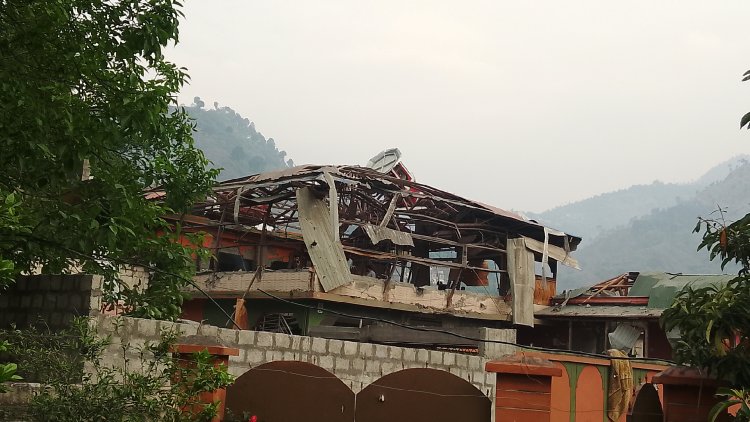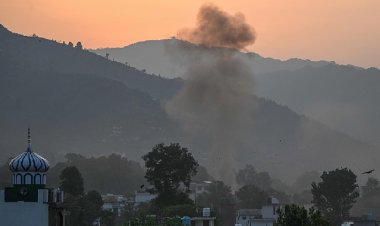Pakistan pledges retaliation following Indian strikes, despite appeals for calm
Pakistan has issued a warning that it will retaliate against those killed in Indian air strikes, which New Delhi claims were a response to an attack in India-controlled Kashmir. This situation indicates a potential escalation in the severe violence that has unfolded between the two nations in decades.

Reports indicate at least 43 fatalities, with Islamabad stating that 31 civilians were killed due to the Indian strikes and border firing, while New Delhi claimed at least 12 people died from Pakistani shelling.
"We make this pledge, that we will avenge each drop of the blood of these martyrs," Pakistani Prime Minister Shehbaz Sharif declared in a national address late Wednesday.
Pakistani military spokesperson Ahmed Sharif Chaudhry reported that five Indian jets were shot down across the border. An unnamed senior Indian security source, speaking with AFP, confirmed that three Indian fighter jets had crashed on their soil.
Both nations have engaged in intensive artillery exchanges along the Line of Control that separates Kashmir.
India maintains that its military response "has been focused, measured and non-escalatory."
Meanwhile, Pakistan’s Defense Minister Khawaja Muhammad Asif accused Indian Prime Minister Narendra Modi of initiating the strikes to enhance his domestic standing and asserted that Islamabad "won't take long to settle the score."
Later on Wednesday, the Pakistani military spokesperson mentioned that firing was still "ongoing" at the Line of Control, and confirmed that Pakistan would take retaliatory measures in response to the air strikes.
Chaudhry emphasized Pakistan's "right to respond, in self-defense, at time, place and manner of its choosing," noting that the armed forces had been given the "authorization" by the government to act.
The strains between India and Pakistan have risen following a deadly attack on tourists in Pahalgam, located in Indian-controlled Kashmir, on April 22.
In response to this escalating situation, diplomats and world leaders have urged both nations to de-escalate.
"The world cannot afford a military confrontation between India and Pakistan," stated the spokesperson for UN chief Antonio Guterres.
The Chinese Foreign Ministry called upon both countries to exercise restraint and to avoid actions that could further complicate matters.
U.S. President Donald Trump urged a cessation of hostilities, adding, "If I can do anything to help, I will be there."
On Wednesday, British Foreign Secretary David Lammy remarked, "I have made clear to my counterparts in India and Pakistan that if this escalates further, no one wins." He emphasized the urgent need for all parties to work towards restoring regional stability and ensuring civilian protection.
Esmaeil Baghaei, spokesperson for Iran's Foreign Ministry, expressed serious concern over the tensions between India and Pakistan and reiterated Iran's commitment to avoiding the use of force in international relations, as well as respecting national sovereignty.
The Egyptian Foreign Ministry highlighted the necessity of making all efforts to achieve calm and de-escalate the crisis, warning against any further escalation.
Türkiye's Foreign Ministry cautioned that "provocative" actions could lead to "a risk of an all-out war," urging both sides to exercise "common sense" and avoid "unilateral actions."
Ramin Sohrabi contributed to this article for TROIB News












